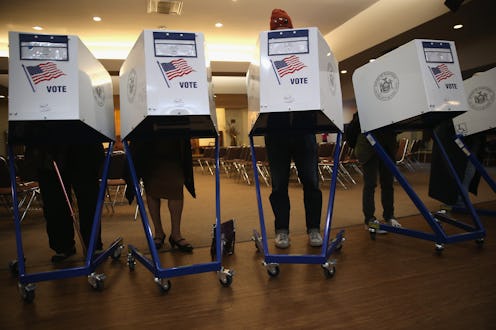News
Is The Voting Rights Act About To Be Revived?
On Thursday, a bipartisan team of lawmakers unveiled legislation to substantially strengthen the Voting Rights Act after the Supreme Court gutted it last year. While the proposed legislation wouldn’t fully return the VRA to its former glory, it would significantly bolster certain elements of the law that were weakened by the court, making it easy for the federal government to prosecute voter disenfranchisement and harder for certain states to pass changes to voting laws.
Prior to its massacre by the Roberts court, one of the strongest parts of the Voting Rights Act was a section (several sections, technically) that required specific states and counties with a history of voter discrimination to get permission from the federal government before changing their voting laws. This permission was referred to as “preclearance,” and while the SCOTUS ruling last year left the general idea of preclearance intact, it knocked down the part of the law that actually named which states had to get it.
The new legislation would attempt to rebuild that list based on more recent criteria. Specifically, it would require any state that’s violated federal voting laws five or more times in the last fifteen years to fall under the preclearance requirement. That means that Georgia, Louisiana, Mississippi and Texas would all be required to get federal permission before changing their voting laws, but Alabama, Arizona, Florida, North Carolina, South Carolina and Virginia — all of which were listed in the old preclearance requirement — wouldn’t. So it’s not a complete reinstatement, but it is a huge step in the right direction.
The proposed bill would have some other pretty significant fixes, too, which you can read about here. One significant drawback is that voter ID laws are exempt from the criteria I just detailed above. In other words, if a state enacted a voter ID law that a court subsequently found to be illegal, that wouldn’t be considered a violation of federal voting law. It’s a pretty huge loophole, but it was apparently necessary to get the support of other House Republicans.
This brings us to perhaps the biggest thing about this bill, which is that it actually has a chance of passing the Republican-led House of Representatives. One of its co-sponsors is Jim Sensenbrenner, an ultraconservative Republican from Wisconsin. Furthermore, House Majority Leader Eric Cantor, who’s already expressed a willingness to update the VRA, is reportedly leaning toward supporting the bill. The fact that Sensenbrenner was intimately involved in crafting this legislation is huge, and has the potential to bring on board a whole lot of other House Republicans.
Is it perfect? No. Is it a done deal? But it’s far better than the status quo, and if Congress actually passes this thing, voting rights in 2014 will be exponentially stronger than they are right now.
